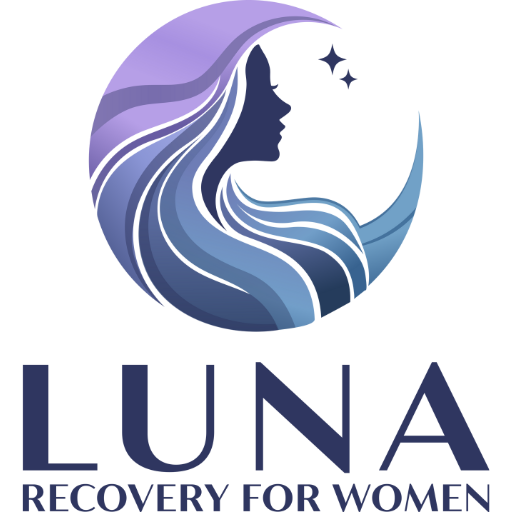Becoming a parent is often described as one of life’s most joyful experiences—but for many new mothers, the postpartum period can also be marked by unexpected emotional turbulence. Postpartum depression (PPD) is a serious and common mental health condition that affects roughly 1 in 7 women after childbirth. Unlike the short-lived “baby blues,” which fade within a few weeks, PPD can be intense and long-lasting, impacting a mother’s ability to care for herself and her newborn. Understanding how postpartum depression happens and what it entails is key to fostering awareness, support, and timely treatment.
What is Postpartum Depression?

Postpartum depression is a type of mood disorder that can affect women after giving birth. It is characterized by persistent feelings of sadness, anxiety, and exhaustion that may interfere with a mother’s daily functioning, bonding with the baby, or ability to complete everyday tasks. While PPD most commonly occurs within the first few weeks postpartum, it can also develop several months after delivery.
Importantly, postpartum depression is not a sign of weakness or a character flaw. It is a medical condition influenced by a range of physiological, psychological, and social factors. Like other forms of depression, it varies in severity—from mild to debilitating—and often requires professional support.
Causes and Risk Factors
There is no single cause of postpartum depression, but rather a combination of hormonal shifts, life changes, and individual predispositions. Here are the primary contributors:
1. Hormonal Fluctuations
During pregnancy, levels of estrogen and progesterone rise dramatically. Within hours of childbirth, however, these hormone levels drop sharply—much like a crash. This sudden hormonal change is believed to contribute significantly to mood disturbances. Thyroid hormone levels can also fluctuate postpartum, potentially affecting mood and energy levels.
2. Emotional Stressors
Bringing a new baby home often brings joy, but it also introduces stress, including sleep deprivation, identity changes, and new responsibilities. Mothers may feel overwhelmed by the pressure to be perfect or anxious about their ability to care for their child. For some, unmet expectations around childbirth or breastfeeding can also contribute to emotional strain.
3. History of Mental Health Issues
Women who have experienced depression, anxiety, or bipolar disorder prior to or during pregnancy are at a higher risk of developing PPD. A personal or family history of mental illness can amplify susceptibility, especially if untreated during the perinatal period.
4. Lack of Support
Social isolation or lack of support from partners, family, or friends can heighten feelings of loneliness and hopelessness. Practical help—such as assistance with household tasks and baby care—can ease the burden on new mothers and reduce emotional stress.
5. Other Contributing Factors
Additional risk factors include a difficult or traumatic labor, premature birth, having a baby with special needs, unplanned pregnancies, or financial and relationship difficulties. Even seemingly “low-risk” mothers may experience PPD, which emphasizes the need for universal screening and support.
Symptoms of Postpartum Depression
The symptoms of postpartum depression go beyond the common “baby blues,” which are mild mood swings, crying spells, and fatigue that usually resolve within two weeks. PPD symptoms are more severe, persistent, and interfere with daily functioning. They may include:
- Persistent sadness, emptiness, or hopelessness
- Intense irritability or anger
- Loss of interest or pleasure in activities, including caring for the baby
- Changes in appetite or sleep (insomnia or sleeping too much)
- Extreme fatigue or lack of energy
- Difficulty bonding with the baby
- Withdrawal from loved ones
- Anxiety or panic attacks
- Feelings of worthlessness, guilt, or inadequacy
- Thoughts of harming oneself or the baby (in severe cases)
It’s important to note that these symptoms can vary widely between individuals. Some mothers may appear functional on the outside while struggling internally—a phenomenon often referred to as “smiling depression.”
Diagnosis and When to Seek Help
PPD is diagnosed through clinical assessment, often using screening tools such as the Edinburgh Postnatal Depression Scale (EPDS). Healthcare providers, including obstetricians and pediatricians, play a vital role in identifying early signs of postpartum mental health issues.
If symptoms last more than two weeks, worsen over time, or interfere with the ability to function or bond with the baby, it is essential to seek professional help. Untreated postpartum depression can have lasting effects not only on the mother but also on the child’s development and the overall family dynamic.
Treatment Options
The good news is that postpartum depression is treatable. A range of therapeutic options exist depending on the severity of symptoms and individual needs:
1. Therapy
Talk therapy, such as cognitive-behavioral therapy (CBT) or interpersonal therapy (IPT), is often the first line of treatment. These approaches help individuals identify negative thought patterns, develop coping strategies, and improve emotional regulation.
2. Medication
In moderate to severe cases, antidepressant medications—particularly selective serotonin reuptake inhibitors (SSRIs)—may be prescribed. Many antidepressants are considered safe during breastfeeding, but decisions should be made in consultation with a healthcare provider.
3. Support Groups
Joining a support group with other mothers experiencing similar challenges can offer a sense of community and reduce feelings of isolation. Peer support is particularly helpful in validating emotions and sharing coping strategies.
4. Lifestyle Changes
While not a standalone treatment, healthy habits—such as regular exercise, nutritious eating, and adequate sleep—can improve mood and resilience. Partner involvement and delegating tasks can also alleviate stress.
5. Hospitalization
In rare and severe cases, such as when there is a risk of self-harm or psychosis, hospitalization may be necessary to ensure the safety of the mother and baby.
Postpartum Psychosis: A Rare but Serious Condition
Distinct from PPD is postpartum psychosis, a rare but severe psychiatric emergency affecting 1–2 per 1,000 births. Symptoms include hallucinations, delusions, severe mood swings, and confusion. It typically begins within the first two weeks postpartum and requires immediate medical intervention. Prompt treatment, often involving medication and hospitalization, is critical.
Get Postpartum Depression Treatment in North Andover, MA

Postpartum depression is a complex but treatable condition that can affect any new mother—regardless of background, experience, or parenting style. By understanding its causes, recognizing the symptoms, and advocating for timely care and support, we can better protect the well-being of both mothers and their families. No one should have to face postpartum depression alone, and with the right help, recovery is entirely possible.
If you or a loved one are struggling with postpartum depression, contact us anytime at (855) 943-0472 or info@lunarecoverycenter.com, or visit us at 1270 Turnpike St, North Andover, MA (01845).
Don’t wait to get help. Start your journey towards recovery today.
